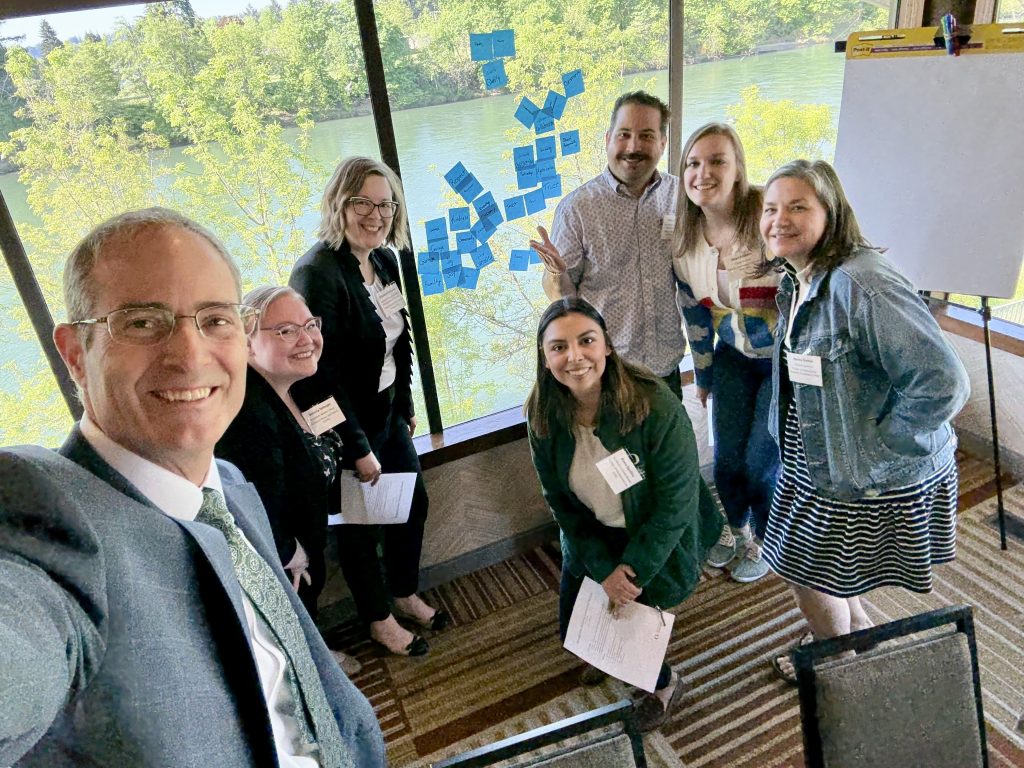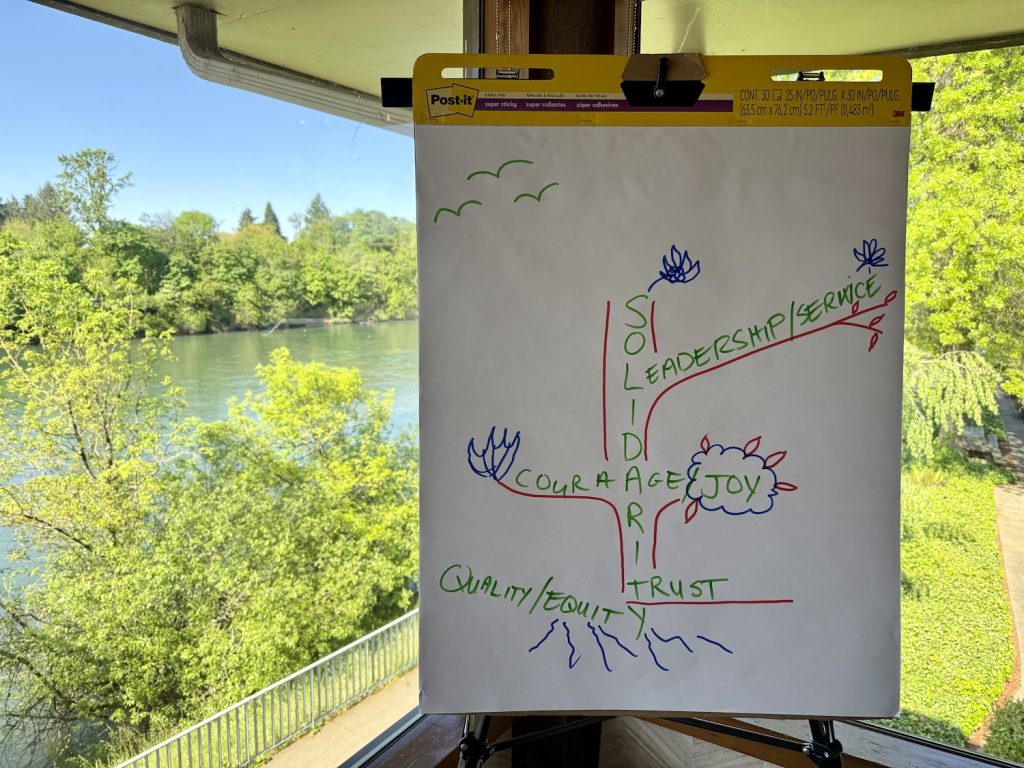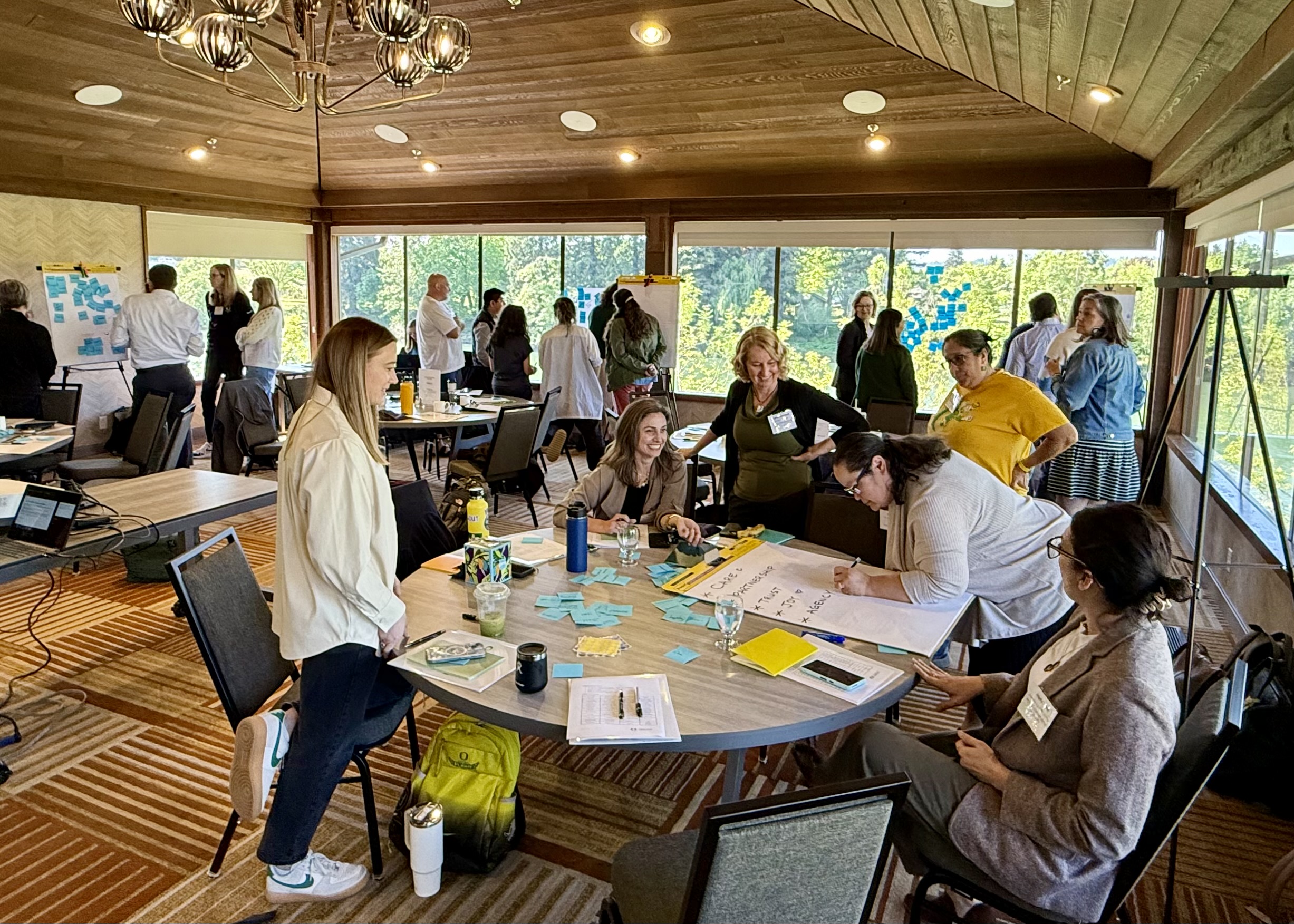On a Friday in early May, I joined a group of leaders at the University of Oregon whose work focuses on advising. They had gathered in Eugene, down along the Willamette River, to identify the shared values that would shape their work together in the months and years to come. I had been looking forward to spending time with them, reflecting on the deeper purpose of their vital commitment to advising and thinking together about the values that we would need to practice to make good on our commitments to the success of our students.
As I thought about how I might frame my time with them during this difficult period of fear and uncertainty across higher education, I found myself returning to that compelling video, now almost fifteen years old, in which Brené Brown identifies courage with wholeheartedness and gives voice to the power of vulnerability.
Surveying the national political landscape makes it painfully clear that we have thus far failed to embody the lessons she teaches in this video.
In her research, Brown identifies the characteristics of those she found to be most capable of connection. She calls them “wholehearted,” and describes them as having a deep sense of love and belonging because they believe themselves to be worthy of love and belonging.
This sense of worthiness gives rise to wholehearted behavior, which is rooted, it turns out, in the courage to be vulnerable. Brown explicitly connects wholeheartedness with courage—the word “courage” derives from the Latin, cors, or heart. Those most capable of connection have the courage to be vulnerable, to open themselves authentically to others in ways that deepen relationships and build trust.
The great threat to higher education posed by the current actions of the federal administration lies in the pall of fear and uncertainty they cast over our core educational and research activities. Even so, a great opportunity for higher education presents itself here, if, in the face of this fear and uncertainty, we are able to cultivate practices of wholeheartedness rooted in the worthiness of our shared purpose.

The Value of Values Work
Over the years of working on values-enacted leadership with the HuMetricsHSS initiative, I have come to realize that one of the most important aspects of values-enacted work is the time we take in the beginning to identify the values we hope to enact in the work we are doing together. The conversations we have around the table about how the values we say we care about will be put into practice in our work together requires vulnerability, openness, and a willingness to explore the deeper commitments that draw us to one value over another.
The value of these conversations lies not only in the specific values identified, but also in the time we take together to learn more about each other and the values that emerge as important. Often there is laughter and a sense of playfulness in these conversations, gifts in and of themselves.
But it can also happen that a value will evoke a difficult truth, and a quieter, more serious tone will hover among those in dialogue together. I listen for those more hushed moments of meaningful connection when something true and real finds its voice. Such moments, however difficult, open us to deeper connection. This connectedness sustains us through the challenges we face.

The Joy of Connection
That Friday morning in the beautiful space overlooking the Willamette River, I had the privilege of listening to and participating in a preliminary discussion of values at one of the tables. I am always moved by the creativity and joy that emerges in these initial discussions of values as members of the group begin to consider what is most important to them. In the image above, the group adopted the metaphor of a tree—the solidarity tree! Rooted in trust, equity, and quality, the solidarity tree has branches of courage, leadership, service, and joy. It was a gift to be part of the conversation that led to this image, and I look forward to learning more about the values our advisors adopt as shared.
I was grateful for the opportunity to spend some time with such a wise and talented group of colleagues as they began to identify the values that will shape our approach to advising at the University of Oregon. In laughter and the quieter moments of connection, I heard a wholehearted commitment to each other that will nurture the growth and development of our students as they chart pathways to meaningful lives.

